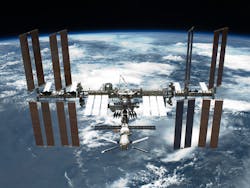NASA picks Mercury Systems to provide data recorders for EMIT instrument aboard International Space Station
ANDOVER, Mass. – Space exploration experts at the U.S. National Aeronautics and Space Administration (NASA) in Washington needed solid-state data recorders for the NASA Earth Surface Mineral Dust Source Investigation (EMIT) science mission. They found their solution from Mercury Systems Inc. in Andover, Mass.
Officials of the NASA Jet Propulsion Laboratory (JPL) in Pasadena, Calif., have chosen Mercury to provide solid-state data recorders for the Earth Imaging Spectrometer test and measurement instrument, which is scheduled for launch to the International Space Station (ISS) in 2022.
The EMIT mission maps the surface mineralogy of arid dust source regions and aids in improving forecasts of the role of mineral dust in the warming or cooling of the Earth's atmosphere.
By mapping the composition from space of areas that produce mineral dust, EMIT will advance the understanding of dust's effects to the Earth system and to human populations now and in the future.
"Mercury's solid-state data recorders are purpose-built to support the need for ultra-reliable and agile radiation-tolerant storage devices," says Chris Opoczynski, vice president and general manager of Mercury's data segment.
For more information contact Mercury Systems online at www.mrcy.com, or NASA JPL at https://earth.jpl.nasa.gov/emit.
